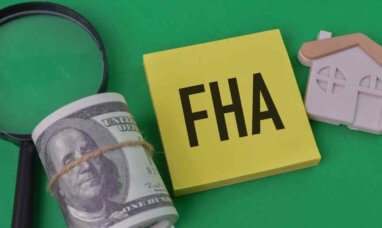Nearly every lender charges mortgage origination fees. They are upfront fees your lender charges you to process your mortgage application and close the house sale.
Quoted as a small percentage of the total amount of your mortgage loan, they are typically between 0.5% and 1% of it.
The mortgage origination fee is typically included in the closing costs and includes things like the application fee, cost of the appraisal, title insurance, and disbursements such as courier fees.
Origination fees are based on the FASB 91 loans origination fees guide that establishes, “the accounting for non-refundable fees and costs associated with lending.”
It isn’t as easy as looking for a line on your statement of account that reads “origination fees.” Oftentimes, lenders add a number of small fees to your account, so you need to know what to look for.
To get a sense of what your mortgage origination fees should be, you can use a loan origination fee calculator. Once you input the required information, it will give you an estimate of how much you can expect to pay in origination fees based on your state.
How Mortgage Lenders Make Money
Mortgage lenders make money in a variety of different ways including origination fees, yield spread premiums, and discount points.
The mortgage lending business is competitive, so some lenders lower their interest rate to attract more customers. However, these companies tend to have higher origination fees and make more money that way.
As a consumer, you need to be aware not only of the interest rate your mortgage lender gives you, but also of any hidden origination fees they charge.
For example, the FHA origination fee is based on the loan amount and you’re charged a flat 1% of your mortgage amount; many reverse mortgage lenders charge no origination fee.
How to Spot Junk Fees
You should always review the loan estimate that your mortgage lender is legally obligated to provide you after you apply for your mortgage.
The loan estimate includes a line for each expense you’re being charged for the lender to process your mortgage.
Review it carefully and highlight any expenses that seem high or unnecessary. Lenders often break fees into different sections to make it look like you’re not paying any high fees; however, when you add them up, they cost you a lot of money.
You should look for expenses like administration fees, underwriting fees, application fees, document preparation fees, and appraisal review fees.
These are all fees you should speak with your mortgage lender about and try to negotiate them.
All Origination Charges are Negotiable
You can often negotiate with your lender when it comes to origination fees. It is the most flexible way mortgage lenders make money, and they will often reduce your fees if you ask them.
The larger your loan, the more likely you are to have some of your origination fees reduced.
You need to educate yourself before negotiating your mortgage origination fees. Taking a homebuyer’s education course will help you know what fees are legitimate and what fees are junk.
You can even start negotiating the mortgage origination fees before you commit to a lender. Ask them what origination charges you can expect to see on your loan estimate if you use their services, and get their answer in writing.
Speak to your mortgage lender with confidence, and you’ll be amazed at how quickly they’re willing to waive some of the origination fees to keep you as a customer.
Frequently Asked Questions
Can You Roll Over Closing Costs into a Mortgage?
You can roll your closing costs into a mortgage as long as the added costs don’t push your total loan amount over your lender’s loan-to-value ratio and debt-to-income ratio.
If you know you want to roll your closing costs into the mortgage, you should speak to your mortgage lender at the start of the process to ensure you’re eligible to do this.
What is the Mortgage Origination Process?
You know you have to pay mortgage origination fees, but what exactly is involved in the mortgage origination process?
The mortgage origination process includes all the steps a borrower (you) has to take to receive a new mortgage. It includes pre-approving you as the borrower, the application process, preparing the loan documents and signing them with you, and closing the sale to transfer the house from the previous owner to you.
Is the Origination Fee the Same as Points?
Discount points are an optional way you can reduce your mortgage rate. You pay a certain interest percentage upfront in exchange for a lower interest rate.
The cost of discount points is included in your origination fee, but they are not the same thing.
If you didn’t purchase points but see them on your loan estimate, have your mortgage broker remove them.
What Lenders Charge No Origination Fees?
There are many lenders that don’t charge origination fees. They include:
Before you commit to using one of these lenders, be sure to review their interest rates to make sure they are competitive.
Do I Have to Pay Origination Fees if I Get a VA Loan?
Yes. Veteran Affairs allows lenders to charge origination fees up to 1% of the loan amount on VA loans.
The lender can choose to charge you a flat 1% fee or pick and use what origination fees they charge you as long as they don’t add up to more than 1% of the loan amount.
How Can I Report Deceptive Mortgage Practices?
If you think your mortgage lender is being deceptive or trying to scam you, there are a number of government agencies that can assist you.
You can report a mortgage company that charges you fees for services that aren’t provided or omits important facts about aspects of your mortgage (including origination fees) to the FTC.
All you have to do is fill out a form and the incident is shared with law enforcement.
Unfortunately, they can’t resolve every personal claim made but you reporting a deceptive mortgage broker may prevent somebody else from being taken advantage of in the future.
Featured Image: Twenty20








